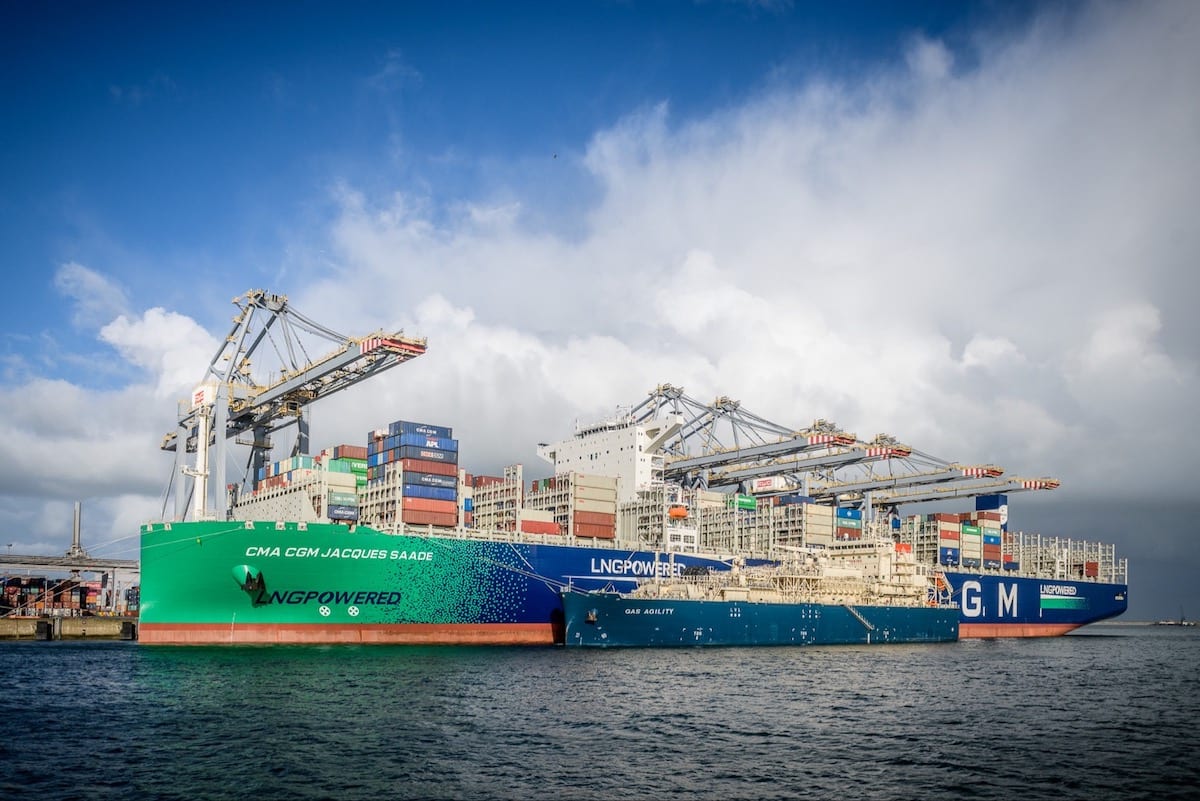Ever since Steve Job’s iPad tablet brilliantly defined a market segment that didn’t exist before (or at least a customer need/want that had not been decently exquisitely addressed before from a technological point), many companies have been offering their products as an ‘app’ version, from publishers to messaging services to providing updates on traffic conditions. Why then not a ‘ship brokerage app’ to provide both info on commercial vessels and mainly allow for an ‘exchange’ for buyers and sellers to buy vessels?
Why this has not been done so far? Why not eliminate the ‘hassle’ of dealing with (and cutting out) shipbrokers and save on the broker commissions?
About one thousand vessels were sold in the secondary market in 2012 having a collective value of $13 billion and generating nominally $130 million in shipbrokerage commissions (again, nominally speaking, and assuming just 1% commission per transaction). There were also about 1,500 orders for newbuildings and another 1,350 vessels sales in the demolition market in 2012. Obviously, a platform that could streamline the sale & purchase process could provide significant savings to the buyers / sellers, and also make the market more efficient from an economic point of view. Why not then?
Moving the ship brokerage business online has been tried before, by several parties actually, in the frenzy days of ‘dot com’, and all those efforts failed miserably; given such poor track record, any attempt to try again with an ‘app’ platform this time would make many a prospect app developers twice hesitant.
What’s the point?
First, shipbrokerage, like many aspects of shipping, is an extremely personable business and depends heavily on relationships, personal interaction and trust. The average price of a vessel sold in 2012 was about $13 million, which especially in a down market like the one we are experiencing, is a sizeable chunk of money for a piece of equipment/property. What’s the best price each time, ‘price discovery’ as economists like to say, is a trial-and-error attempt, each time there is a transaction, no matter how recent the ‘last done’ has been and how ‘commonplace’ the vessel is; vessels, unlike a bottle of Coke – used as a ‘typical’ transaction in a previous post – do not come with an official price tag.
The seller, within the prevailing market conditions, is trying to maximize the price they can get the buyer(s) to pay, and vice versa. Even small slips during the negotiations on pricing can result in several hundred thousand dollars ‘left on the table’; and $130,000 is just 1% of the price of last year’s average price, but still it pays a captain payroll for a year from the company’s operating budget. Negotiating the price is always a sensitive matter and takes skill and expertise; sometimes there is only one buyer, and a sense of urgency has to be created in order to put pressure on that lonely buyer to warm up and pay up; maybe keep marketing the vessel and ‘threaten’ to bring more buyers to the ‘bidding’; sometimes, when there are no other buyers around, some ‘bluffing’ may do the trick; sometimes, the seller can give up on few points that have little value to the seller but real value to the buyer (allow crew onboard a bit longer, changing the jurisdiction of the sale by delivering the vessel to a different port, etc). Buyers are not known to put their best number forward for the purchase of a vessel, and this ‘massaging’ to get a higher price gets a masterful broker to get it done by personal interaction.
Sotheby’s and Christie’s and other auction houses in fine art (mainly) still keep their business model in the physical market with premier real estate locations and high overhead, luxurious style; of course it works best for the auctioneer’s to create the right image for their services, but still it’s difficult envisioning international buyers bidding online for a $200 million Monet masterpiece (or a $46 million Norman Rockwell sold last week.) Buyers have to be ‘put under pressure’ for time, by the market, and the competition, being reminded that this may be a once-in-a-lifetime opportunity (after all, Monet’s do not come to the market often, and neither good vessels at right prices – which also builds up on their value), and the message and feedback while the transaction is developing has to be passed on to buyers very promptly and clearly – which is actually one of the real services brokers of all types provide. eBay’s sale model may work well for mostly inexpensive everyday life stuff, but expensive objects usually are much more ‘labor intensive’ during their transacting.
Then, there is the cause and reasoning for which shipowners may sell their vessels: quiet often, most sellers – for good reasons, we reckon – do not put their vessels on the market for sale; they may not be active or determined sellers, they may not be sellers at all actually, or they may do not want to pass the wrong message to the market (by definition, something up for sale is negotiable on pricing and everything other respect); on the other hand, they may be sellers if the price is right, or the terms of the sale are enticing (let’s say upon termination of a charter sometime in the future, etc). The brinkmanship of good brokers is to ‘dig up’ transactions where none exist by convincing shipowners to be sellers or buyers, to bring them together and to get them to agree on pricing and the terms of a sale. For a shipowner who is looking for a vessel to buy, contacting their preferred shipbroker may be the only way to source vessels for now; what would be the alternative, to do a google search? But, on this, a bit later.
Besides the price, and negotiating on price, usually vessels are not uniformed assets despite a certain degree of standardization; they vary in many respects from the day they were conceived by engineers on a drawing board as newbuildings, to the custom modifications of an attentive shipowner, to the supervision and special care they got during construction, to the maintenance they were privileged to during their trading lives, etc. No two vessels are alike, and thus, during the sale, a lot of technical information and records have to be passed between buyers and sellers, physical inspections have to be arranged, a lot of questions have to be answered, and many more exchanges have to take place in order to reach some sort of information symmetry between buyers and sellers.
How a seller would otherwise share such info, some of which may be proprietary?
Definitely not by listing it on Craiglist; possibly by setting up ‘secured rooms’ or databases digitally that would be accessed by password, which is a costly and laborious process (that would undermine any cost savings by sidelining the shipbroker.)
To the frustration of financial institutions as buyers of shipping assets, a lot of ‘horse trading’ and emails have to be exchanged even for a sale to get any traction. And, then again, once both buyer and seller have agreed on the main terms, still a lot can happen to have everyone associated with the transaction to shift in overdrive; the market may be changing, whether for asset pricing or freight, to favor one side and motivate the other to find ways to walk away from the agreement; the financials of the seller or the buyer may be changing and make the transaction more complicated. Or even, new information comes to the market, or to the attention of the buyer or seller. One of the most memorable experiences in our shipping career has been the discovery, once agreement of main terms had been reached for the sale of a multi-vessel package between a major US-based leasing company to a private Greek buyer a few years ago, that one of the vessels, several years before the transaction, had run aground on soft sand in South Africa; while the damages from the grounding per se were minimal, the grounded vessel shifted with the tide and hit a centuries-old canon buried in the sand, which cannon penetrated the hull causing some shaft damage. It took many many long hours on the phone to get all the issues resolved and salvage the transaction – which past damages were reflected on vessel records and affected insurance premiums, and the transaction closed indeed as planned (and delivering exceptional value to our client.) If this brokerage transaction was taking place through an ‘app’, there is nothing that would have closed, since all the ‘soft shoe-ing’ took place once agreement of main terms had been reached.
A shipbroker, besides brokering the ‘asset’, actually provides transaction brokerage by negotiating the asset and also the terms relating to the sale and exchange of ownership and providing consulting work for having the sale conclude successfully. And to close a transaction with many moving parts in an ever moving market, transaction brokerage often means managing the transaction and the principals of the transaction, too. As we saw in previous article about the main terms of a Memorandum of Agreement based on the Norwegian Sale Form (NSF 93), there are many terms to be agreed upon for the sale, a lot of details to be tended to, and most of these terms and details are not always easily quantifiable and invariably expensive in properly settling them. Thus, transaction brokerage in shipping is one of the reasons that still maintains a ‘moat’ around the profession. But as in every other industry, the digital age is an indiscriminant industry disruptor; possibly, sooner or later, there may be a new mouse trap based on an ‘app’. Who would ever thought that commercial loans, annuities and insurance policies could be sold in the secondary market not only through brokers but by establishing an digital exchange and have the documentation and paperwork streamlined and securely posted online for buyers to see and evaluate and eventually bid high pricing? There is no need for googling for loans and loan terms, but there is an Exchange for it! Or, there may be an ‘app’ for brokering vessels!
Any suggestion for the name of such an ‘app’?
Tags:
Unlock Exclusive Insights Today!
Join the gCaptain Club for curated content, insider opinions, and vibrant community discussions.

 Join The Club
Join The Club













